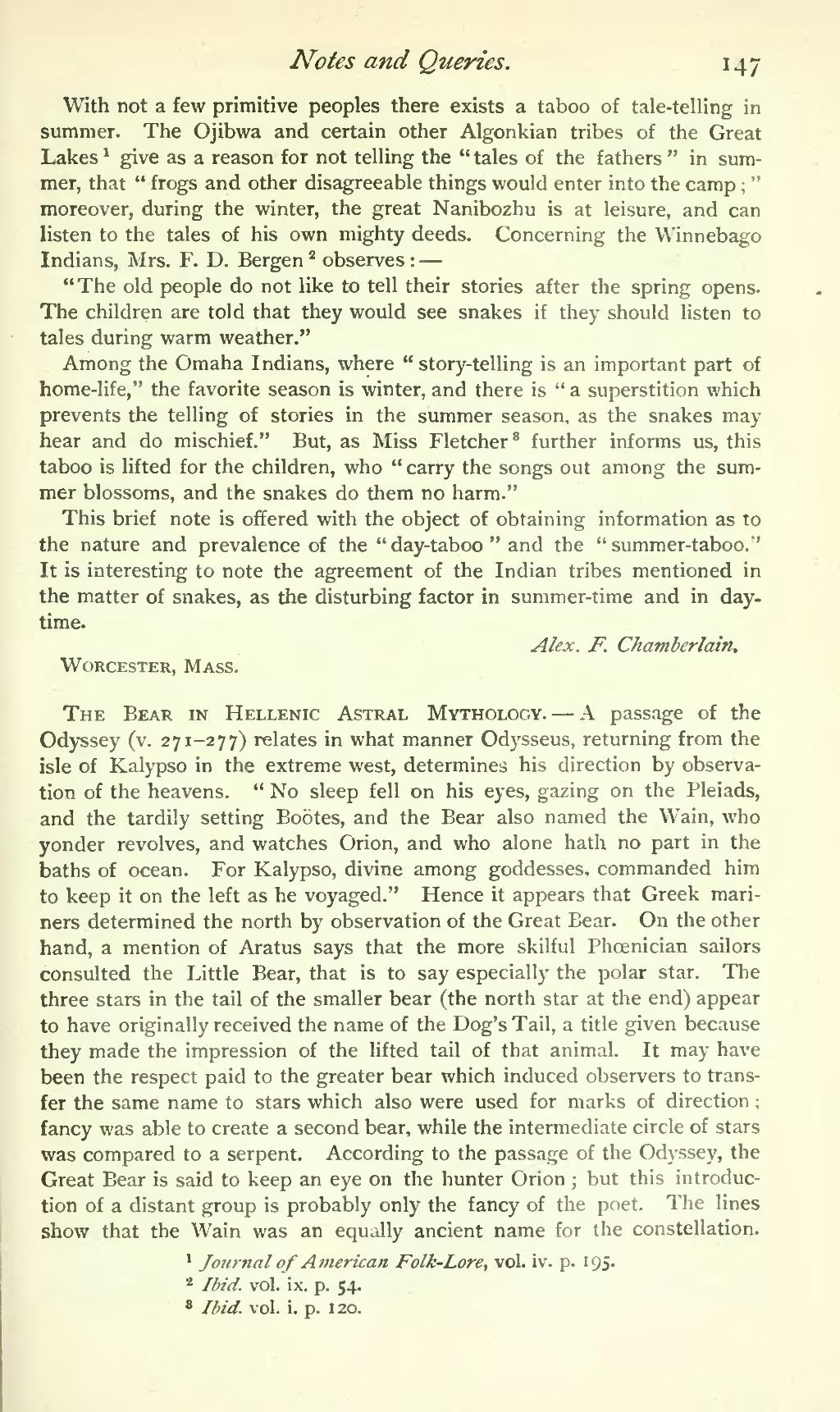Notes and Queries. 147
With not a few primitive peoples there exists a taboo of tale-telling in summer. The Ojibwa and certain other Algonkian tribes of the Great Lakes 1 give as a reason for not telling the "tales of the fathers " in sum- mer, that "frogs and other disagreeable things would enter into the camp ; " moreover, during the winter, the great Nanibozhu is at leisure, and can listen to the tales of his own mighty deeds. Concerning the Winnebago Indians, Mrs. F. D. Bergen 2 observes: —
"The old people do not like to tell their stories after the spring opens. The children are told that they would see snakes if they should listen to tales during warm weather."
Among the Omaha Indians, where " story-telling is an important part of home-life," the favorite season is winter, and there is " a superstition which prevents the telling of stories in the summer season, as the snakes may hear and do mischief." But, as Miss Fletcher 8 further informs us, this taboo is lifted for the children, who " carry the songs out among the sum- mer blossoms, and the snakes do them no harm."
This brief note is offered with the object of obtaining information as to the nature and prevalence of the "day-taboo" and the "summer-taboo. It is interesting to note the agreement of the Indian tribes mentioned in the matter of snakes, as the disturbing factor in summer-time and in day- time.
Alex. F Chamberlain.
Worcester, Mass.
The Bear in Hellenic Astral Mythology. — A passage of the Odyssey (v. 271-277) relates in what manner Odysseus, returning from the isle of Kalypso in the extreme west, determines his direction by observa- tion of the heavens. " No sleep fell on his eyes, gazing on the Pleiads, and the tardily setting Bootes, and the Bear also named the Wain, who yonder revolves, and watches Orion, and who alone hath no part in the baths of ocean. For Kalypso, divine among goddesses, commanded him to keep it on the left as he voyaged." Hence it appears that Greek mari- ners determined the north by observation of the Great Bear. On the other hand, a mention of Aratus says that the more skilful Phoenician sailors consulted the Little Bear, that is to say especially the polar star. The three stars in the tail of the smaller bear (the north star at the end) appear to have originally received the name of the Dog's Tail, a title given because they made the impression of the lifted tail of that animal. It may have been the respect paid to the greater bear which induced observers to trans- fer the same name to stars which also were used for marks of direction ; fancy was able to create a second bear, while the intermediate circle of stars was compared to a serpent. According to the passage of the Odyssey, the Great Bear is said to keep an eye on the hunter Orion ; but this introduc- tion of a distant group is probably only the fancy of the poet. The lines show that the Wain was an equally ancient name for the constellation.
1 Journal of American Folk-Lore, vol. iv. p. 195.
2 Ibid. vol. ix. p. 54. 8 Ibid. vol. i. p. 120.
�� �
